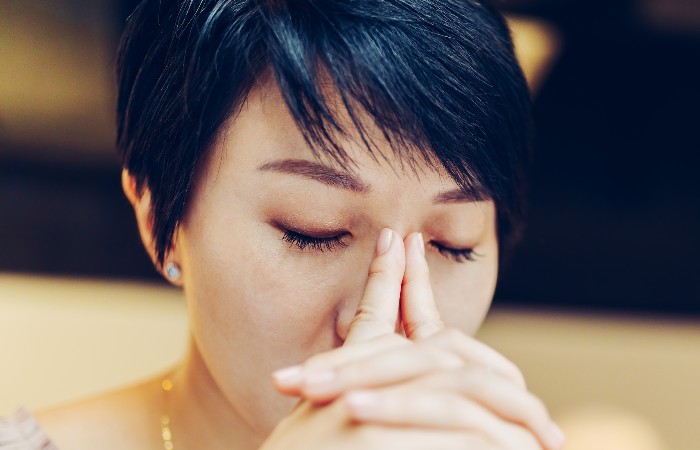Analysis

Study reveals barriers to women receiving support for menopause
In Analysis
Bookmark
Record learning outcomes
Women are failing to receive treatment and support for the menopause because of a variety of barriers, including a reluctance to seek help that is fuelled by their belief their concerns will be dismissed by healthcare professionals and GPs lacking knowledge of the symptoms and confidence prescribing HRT, according to a study published this week.
Research carried out by Katie Barber, who works for the private medical service Oxford Menopause, and Alexandra Charles from Besins Healthcare who funded the study, found barriers “at each way in the management pathway” after one-hour interviews were conducted with 20 menopausal women, 30 GPs and 10 gynaecologists as part of the research.
Six of the menopausal women had been diagnosed with the menopause and were taking HRT, six had been diagnosed with the menopause and were not taking HRT and eight were undiagnosed but experienced symptoms and were not on HRT.
The women were aged between 47 and 59. Fifteen of the 20 stated their ethnicity as white British and five as either Indian, Irish, African, white and black Caribbean. Eleven were educated to college or university level, four had postgraduate degrees, four had finished their education at 18 with secondary education-level qualifications and one had left school at 16.
The interviews were designed to understand the perspectives of each group when it comes to managing menopausal symptoms and uncovered a series of barriers.
Women lacked knowledge of the full range of menopausal symptoms beyond vasomotor symptoms, commonly known as hot flashes and night sweats, and how long they might last. They also misattributed symptoms to other causes and were worried about the stigma of the menopause and being associated with everything it represents, preventing them from discussing symptoms.
Women were found to have a “limited information exchange with GPs” which made it “more difficult to diagnose, especially when follicle stimulating hormone investigations are ‘normal.’”
Their perceptions of HRT were based on their beliefs about the risk of breast cancer and there was “limited or no information” to support the decision to use HRT, how to take it, how long for, long-term safety and the long-term benefits. The researchers noted their concerns had not been addressed, leaving some HRT prescriptions unfilled.
“Many women did not seek help because they did not want to ‘waste a doctor’s time’ or they thought the GP would not be able to do anything as ‘the menopause happens to everybody,’” the researchers said.
“Stigma and embarrassment also prevented many women from discussing their symptoms.” They also said women from African and Asian backgrounds “were less likely to medicalise the menopause and seek help from a doctor.”
Barriers to GPs diagnosing and offering HRT
The study also uncovered barriers to GPs diagnosing and offering HRT, such as their beliefs that the menopause is not an illness but a natural process, leading them to deprioritise it compared with other “real” illnesses.
GPs said they were impeded by “clinical restrictions” and “limited consultation time,” they lacked knowledge of the symptoms and misattributed symptoms to another cause such as depression.
GPs also said they avoided “embarrassing” or “difficult conversations,” resulting in them failing to ask questions about specific menopausal symptoms such as “sexual dysfunction and vaginal issues.”
GPs did not offer treatment with HRT because some believe the menopause does not require treatment and some lack knowledge about HRT and other treatment options. They also lacked confidence in prescribing HRT and did not know when to refer for specialist help.
Some gynaecologists think ‘women have unrealistic expectations of HRT’
Gynaecologists reported barriers to providing care, such as an “explosion in primary care referrals” that contributed to long waiting lists and their belief that “many of these women can and should be managed in primary care.”
Gynaecologists also said women “with complex needs” were not being referred from primary care, “including patients with a history of cancer who could still receive some treatment for symptoms,” while there were “markedly fewer referrals of women with lower socio-economic status and different ethnic backgrounds.”
The barriers to gynaecologists providing HRT included a belief amongst some that lifestyle management should be the first option, that not all women of different ages and at different stages of menopause are suitable for HRT and a perception that “women have unrealistic expectations of HRT treatment.”
The study said all three groups who took part “recognised the need for high-quality educational materials for women” but this was being undermined by a frequent “disconnect” between healthcare professionals and women “as to whose responsibility it was to share or access these materials.”
Non-Caucasian women less likely to be diagnosed with menopause
The researchers said “in some areas,” the NHS was “proactively addressing the increase in demand for support and treatment through provision of dedicated menopause clinics and primary care women’s health hubs.”
However, they noted that “other practices have devolved elements of responsibility to practice nurses” while gynaecologists were using “advice and guidance” to consult on more generic cases.
The study concluded non-Caucasian women and/or those of lower socioeconomic status are less likely to be diagnosed with the menopause. It warned that was “contributing to large health inequalities and missed opportunities.” None of the healthcare professionals who took part in the study reported “pro-actively trying to identify and initiate conversations with these women” despite being aware of those inequalities.
“Some gynaecologists suggested language can be a barrier – they recommended using Language Line rather than a friend/family member to translate to ensure the reliability of communication,” the researchers said, adding healthcare professionals could “recommend women read resources produced by reputable sources such as the British Menopause Society that have been written in different languages.”

